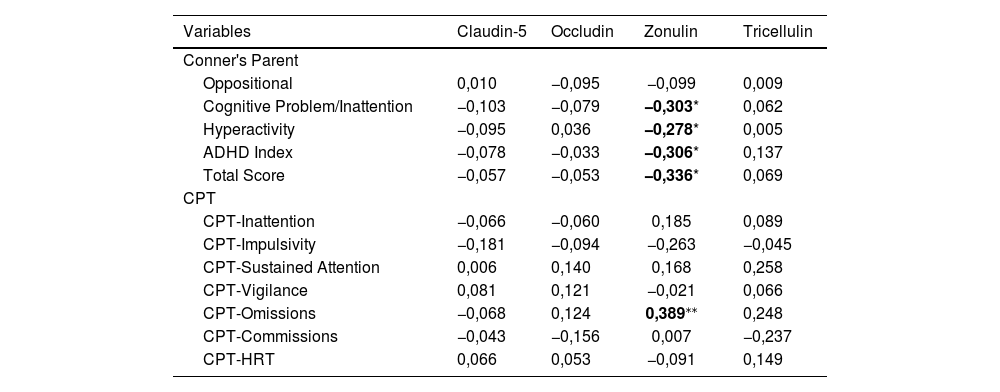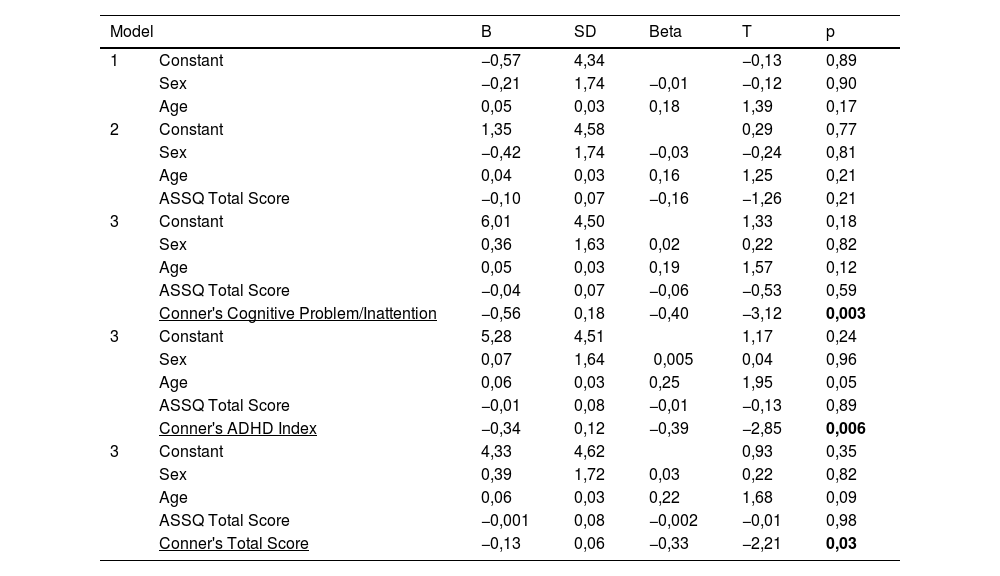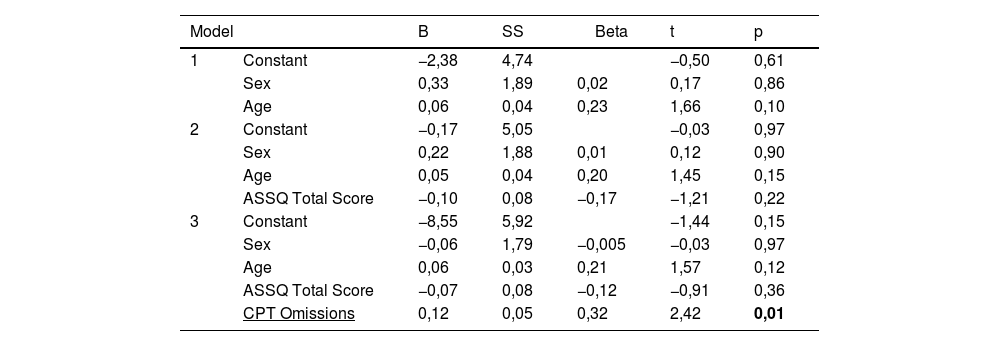Accumulating studies have pointed out that gut-blood and blood-brain barrier dysfunctions due to the alterations in permeability may play a role in the pathophysiology of neurodevelopmental disorders. Tight junctions are crucial components of these barriers and some peptides including claudin-5, occludin, zonulin and tricellulin are important components of these structures. This study aimed to investigate the relationship between these molecules and attention deficit hyperactivity disorder (ADHD) in children and adolescents.
MethodsA total of 57 children with ADHD and 60 controls aged between 6 and 12 years were included in the study. The severity of ADHD symptoms was assessed through a parent-rated questionnaire, and Conner's Continuous Performance Test was administered to the study group. Serum levels of biochemical variables were measured using enzyme-linked immunosorbent assay kits. Biochemical parameter levels and scale scores were compared using Mann-Whitney U or Student's t tests. In addition, a multivariate analysis of covariance (MANCOVA) and a one-way analysis of covariance (ANCOVA) was performed on the outcome variables. Finally, a hierarchical regression model was conducted on the study group.
ResultsSerum claudin-5 and tricellulin levels were significantly lower in the ADHD group compared to the control group. The difference between the groups in terms of serum claudin-5 and tricellulin levels remained significant after controlling for confounding factors such as age, gender and autistic characteristics. There was no significant difference between the groups in terms of serum zonulin and occludin levels.
ConclusionThese results reveal that claudin-5 and tricellulin levels vary in patients with ADHD. Alterations in these peptides may affect the brain by leading to a dysregulation in intestinal or blood-brain barrier permeability. The causal relationship between these peptides and ADHD requires further investigation.
Artículo
Comprando el artículo el PDF del mismo podrá ser descargado
Precio 19,34 €
Comprar ahora










